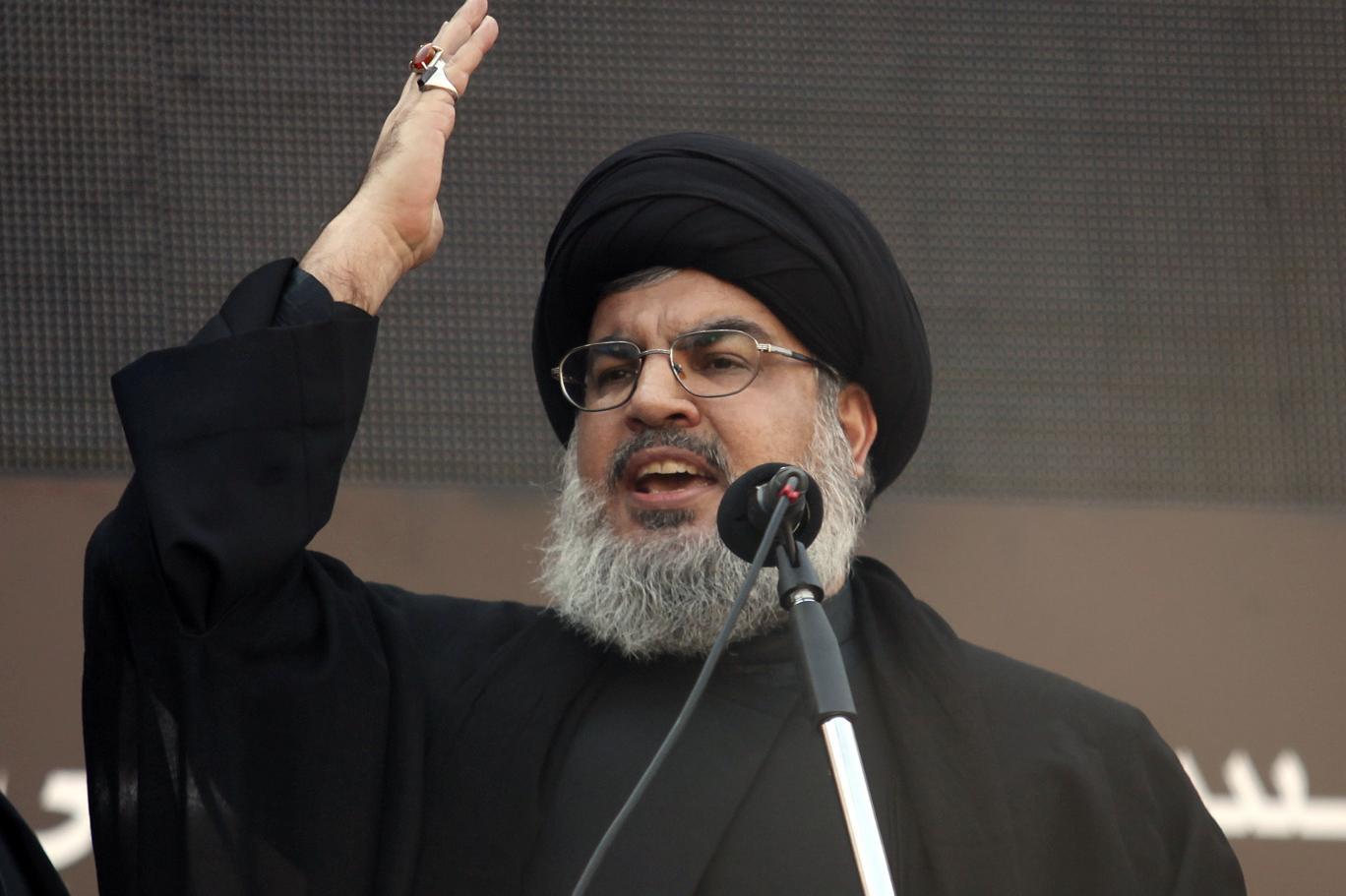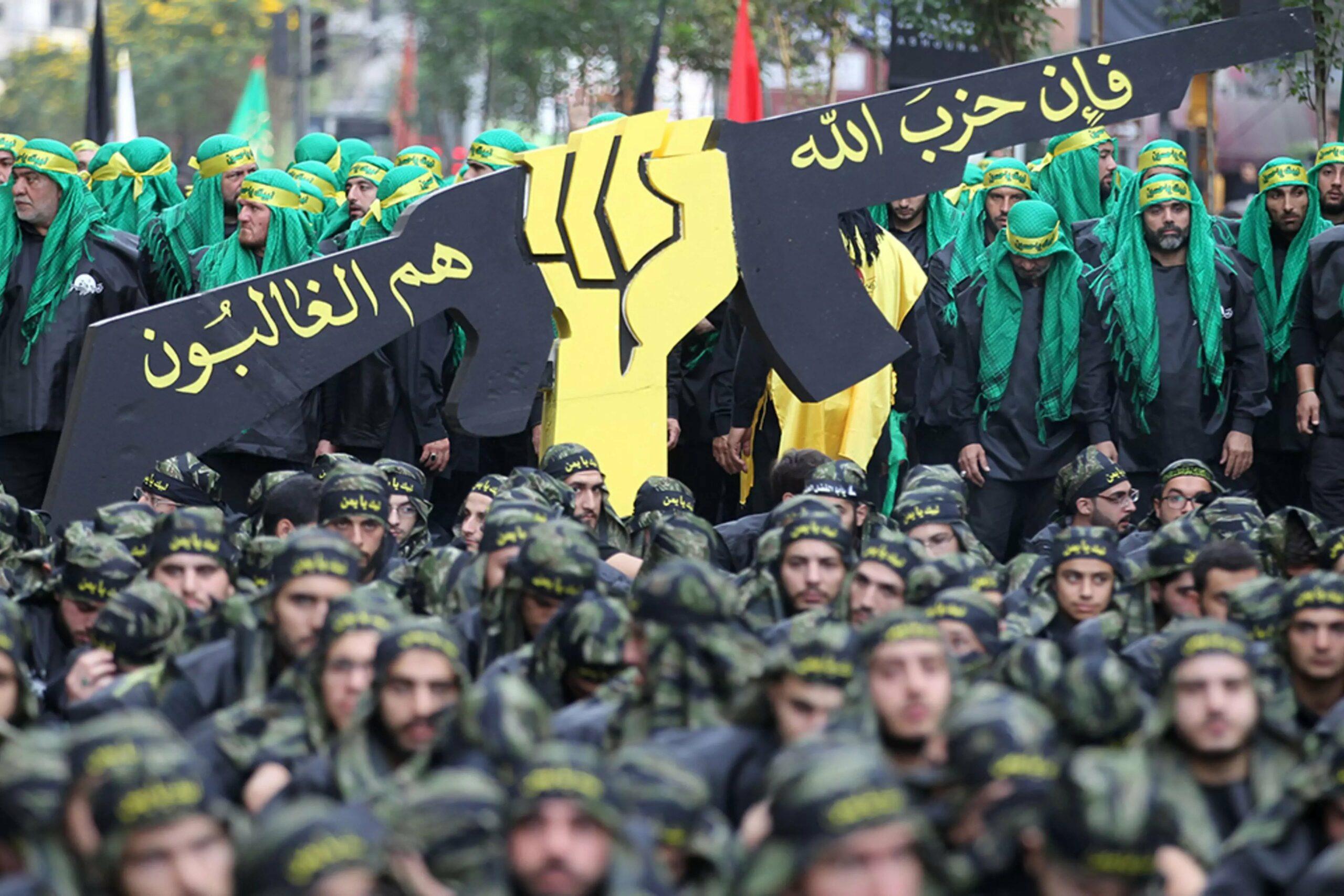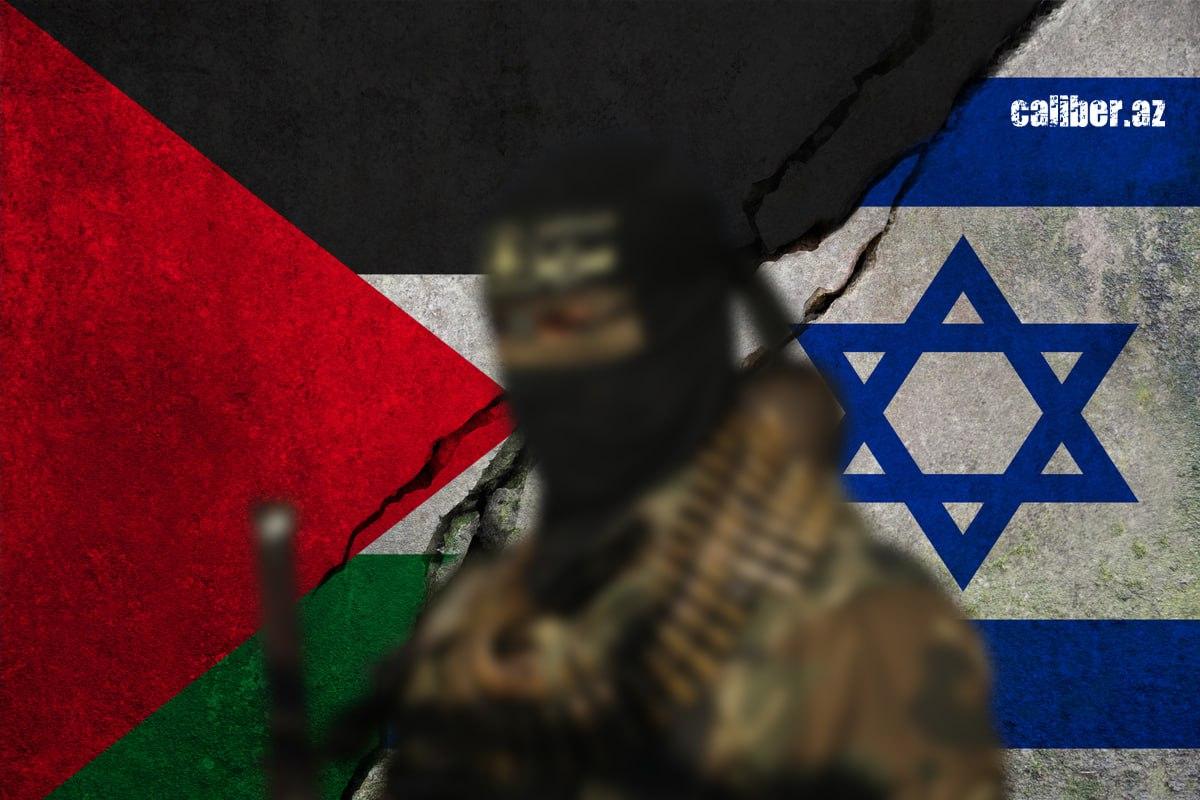"Israel-Hezbollah clashes spark fears of Lebanon's imminent turmoil"
Middle East on edge
ANALYTICS 04 March 2024 - 15:31
| Mikhail Shereshevskiy Caliber.Az |
The Arabic Post, citing senior Iranian and Lebanese sources, reports that Tehran has given the Lebanese pro-Iranian organisation Hezbollah the green light to escalate attacks along Israel's northern border. In turn, Israel is demanding that Hezbollah withdraw its troops 20 kilometres from the Israeli border, beyond the Lebanese Litani River, threatening a major military operation. The intensity of mutual firing in this area is increasing, a direct indication of the growing likelihood of a new Lebanese-Israeli war.
A source from the Islamic Revolutionary Guard Corps (IRGC) told the publication that Esmail Kaani, commander of Iran's Quds Force, recently visited Hezbollah Secretary General Hassan Nasrallah and discussed with him the latest developments in southern Lebanon and on Israel's northern border. And there is an escalation there - the Israeli Air Force is bombing Lebanon, including the town of Saida. At the same time, the Hezbollah group, whose military strength exceeds that of the Lebanese army and which virtually controls the country, is shelling northern Israel. Although both sides are holding back and not using even a tenth of their military arsenals, the intensity of the shelling on both sides is increasing.

Earlier, Hanin Ghaddar, one of the leading experts on Hezbollah, argued that the group is not interested in a full-scale war with Israel for a variety of reasons. Chief among them are the group's precarious position in Lebanon, the lack of widespread popular support, including among Shiites, and the reluctance of the group's main sponsor, Iran, to weaken its main asset, Hezbollah. This organisation is Tehran's strike force, one of the best armies in the Middle East. Its missile potential (150,000 missiles, including hundreds of high-precision missiles) is aimed at Israel and serves as a deterrent to the latter from striking Iran in order to destroy Iran's nuclear and missile industries (Israel has repeatedly emphasised the growing likelihood of such strikes in connection with Iran's plans to develop nuclear weapons). It is hardly in Tehran's interest that Hezbollah be seriously weakened now, as this would open Israel's hands to attacks against Iran itself.
Hezbollah began shelling Israeli territory after Israel launched a ground operation in the Gaza Strip to destroy Hamas. The reason is that Hamas, Hezbollah, pro-Iranian Shiite militias in Iraq and Syria, and the Yemeni Houthis (all of these groups largely control their countries) are part of a single pro-Iranian coalition, the so-called. Resistance axis. One could even say that all of these are elements of the Iranian sphere of influence or empire created by Tehran in the Middle East.
Iran ensures the “unity of the resistance arenas” and opposes the US-Israeli bloc, showing that one of the elements of the Resistance Axis, Hamas, cannot be so easily destroyed without causing a response from others. Israel is bombing Hamas in Gaza, and the United States says its naval force of two carrier strike groups is keeping Israel safe from hostile forces. For their part, pro-Iranian forces are shelling northern Israel and also attacking American bases in Iraq and Syria, thus putting pressure on the US-Israeli coalition.
In parallel, another pro-Iranian organization, the Yemeni Houthis, are shelling military and civilian ships in the Red Sea in order to paralyze international trade in this strategically important region, through which about a third of all container shipping and 6% of global oil trade pass. The Red Sea serves as an important transport artery between US allies in Europe and the Indo-Pacific region. Therefore, the Houthis are trying to block this route.
All together these are a unified war between Iran and its allies on the one hand and the US-Israeli coalition on the other. Nevertheless, Iran spares its allies, without whom it cannot govern the region. Therefore, all their attacks against Israeli and American targets are limited. In addition, too strong strikes against Israel or US bases could trigger crushing strikes by the Israeli and US air forces against Iran, its infrastructure, military industry and decision-making centres. For all these reasons, Tehran has sought to carefully calibrate its allies' attacks against American and Israeli interests. But why, then, is the intensity of mutual attacks between Israel and Hezbollah increasing? Why is it important for Hezbollah to get the green light for a full-scale war with Israel from its main sponsor and ally, Iran? And why has Iran gone along with Hezbollah on this issue?
We find the answer in the wording quoted by the Arabic edition. The meeting between the head of Iran's Qods Force, Qaani, and Hezbollah leader Nasrallah reportedly took place at the latter's request. He said an emergency meeting was "necessary" after "information was received" indicating Israel's intention to launch a large-scale offensive against Hezbollah in Lebanon. "Hassan Nasrallah told Qaani that an Israeli attack on Lebanon is imminent and is likely to take place in the month of Ramadan or after Israel invades the town of Rafah in Gaza," an IRGC source told the Arabic Post. "Nasrallah said he is fully confident of Israel's intention to launch a large-scale attack on Lebanon and asked Qaani to give him full freedom in how he intends to attack the enemy," another diplomatic source in Iran said.

The US, like Iran, is not interested in a full-scale war and further escalation in the Middle East. Such a war with an unpredictable outcome is dangerous for the administration in Washington in a situation when there are only 8 months left before the US elections - usually in an election year the US leadership is extremely cautious. The problem is that the allies - the US and Israel - are not united. Perhaps unlike America, the Israeli government is just as interested in a major regional war and its escalation. Israeli Prime Minister Benjamin Netanyahu's programme is simple - to wage military action against the Arabs not only in Gaza but perhaps in Lebanon for at least a year. As Ben Caspit, Alon Pinkas and some other Israeli experts point out, Netanyahu needs to make public opinion forget the failure of Israeli security systems on 7 October, when Hamas attacked Israel and killed 1,200 Israeli citizens, of whom 900 were civilians, taking some 250 hostages.

Most Israelis blame Netanyahu for what happened, which has caused his ratings to plummet. But perhaps a long and bloody war will allow Netanyahu to retain power. In addition, the Israeli leadership benefits from an escalation of hostilities because it hurts Joe Biden's credibility. The greater the loss of Arab civilians, the greater the resentment of part of Biden's constituency - Democrat-progressives, leftists, students and teachers, Muslims, Arabs, etc. By thus continuing the war, Netanyahu is helping Trump destroy Biden, who already looks weak. The goal is to help Trump win the US election in November. For Trump is not just an ally of Israel, he is a friend of the Netanyahu family. Thus, by prolonging and expanding the war, Benjamin Netanyahu is solving a whole range of problems both inside his own country and outside.
Finally, returning to Lebanon, there are other reasons for the likelihood of an Israeli ground military operation in the south of that country. Hezbollah shelling has displaced 100,000 Israeli citizens from their homes. Several settlements and towns in northern Israel have been deserted, repeating the fate of the southern settlements on the borders with Gaza. A total of 300,000 Israelis are internal refugees, many of them constituting the electorate of Netanyahu and his Likud party. For a country of 10 million citizens, this is a huge figure, as if 3 million people in the US were refugees. Netanyahu, as mentioned, must do something about this, because this issue, along with the 7 October factor, is dragging his ratings down.
Finally, as Hanin Ghaddar points out, Hezbollah's weak response, its hesitation and uncertainty are incentivising Israel for a major operation in South Lebanon. Israel's military power is enormous. It is theoretically capable of entering South Lebanon and pushing Hezbollah beyond the Litani River. This is its strategic goal - to push Hezbollah units away from the border to secure Israeli settlements from attacks like the one Hamas launched on 7 October. But Hezbollah has, as mentioned above, a large missile capability, and in the event of a ground operation, Israel, whose air defences are already somewhat depleted by the confrontation with Hamas, would be in for a veritable downpour of missiles for months.
On the ground, Israeli tanks and infantry will be met by Hezbollah commandos, the elite Radwan force and other formations trained in guerrilla warfare. In total, Hezbollah has 20,000 to 30,000 troops and about the same number of reserves. The terrain of southern Lebanon - low mountains covered with forests, riddled with underground tunnels (like Gaza) - is an ideal space for ambushes, gerilla.
In the past, Israel's wars against Hezbollah, in 1982-2000 and in 2006, were unsuccessful and ended with the Israeli army withdrawing from Lebanon and Hezbollah returning to its previous positions. The failure in the second Lebanon war in 2006 was recognised in Israel itself by Eliyahu Winograd's special state commission. Guerrillas and saboteurs would launch hundreds of small ambushes, exhausting the Israeli army on the ground, forcing it to suffer casualties, while tens of thousands of rockets would rain down on Israeli cities.
There are also reports coming out of Lebanon that in addition to Hezbollah, some other parties are mobilising their militias in preparation for a future war. The Israelis are strong, but war is unpredictable, and Lebanon is not a good place for them.
Caliber.Az
|
1
|
High time to declare US ambassador persona non grata Mr. Libby, take your suitcase and leave for Washington
05 May 2024 - 12:06
|
|
2
|
West destabilising situation in Georgia Security, impunity for (foreign) agents
05 May 2024 - 17:28
|
|
3
|
Double standards and Michel's confession Europe's hypocrisy
05 May 2024 - 11:18
|
|
4
|
Armenian priests, peddling false narratives Unmasking revanchist rhetoric
05 May 2024 - 14:57
|
|
5
|
What to expect from China’s stance on Palestine? A long track of mediation
04 May 2024 - 10:28
|
UN official praises Azerbaijan's commitment to SDGs
07 May 2024 - 14:52
Azerbaijan, Iran discuss bilateral cooperation
07 May 2024 - 14:40
"I believe we will deliver 20 billion cubic meters of gas to EU by late 2027"
President Aliyev addresses press conference with Slovak PM07 May 2024 - 14:28
Rally against peace with Azerbaijan sparks debate, speculation
Armenian church clerics stir controversy07 May 2024 - 14:27
Bulgarian President to visit Azerbaijan
07 May 2024 - 14:20
Poorer nations must be transparent over climate spending, says COP29 leader
Exclusive by The Guardian07 May 2024 - 14:16
Israel discontented with US approach to hostage deal negotiations
07 May 2024 - 14:00
Armenian premier stresses border markers’ role in security amid delimitation process
07 May 2024 - 13:50
Xi bristles at criticism of China over the war in Ukraine
07 May 2024 - 13:47
IAEA chief seeks tougher nuclear checks in Iran, with limited leverage
07 May 2024 - 13:36
Azerbaijan, Slovakia mull strategies for development of cooperation
07 May 2024 - 13:30
Israel kills 20 Palestinians in new Rafah operation
07 May 2024 - 13:24
Germany warns Russia against using nuclear weapons in Ukraine war
07 May 2024 - 13:12
Armenia's ruling party: Opposition exploiting emotions to undermine delimitation
07 May 2024 - 13:00
12 Republican US senators threaten ICC with sanctions over Israel arrest warrants
07 May 2024 - 12:48
Azerbaijan calls on UNESCO to stop destruction of cultural heritage in Armenia
07 May 2024 - 12:36
UN official: Azerbaijan firmly committed to achieve Sustainable Development Goals
07 May 2024 - 12:24
US soldier detained in Russia over alleged theft
07 May 2024 - 12:12
Heydar Aliyev Foundation continues restoration efforts for churches and mosques in Karabakh
07 May 2024 - 12:06
Armenia opens criminal case against revanchist blogger
07 May 2024 - 12:00
Gaza ceasefire agreement: official text released
07 May 2024 - 11:48
US vs Shusha
The unexpected victory of reason07 May 2024 - 11:36
Azerbaijan discloses revenue figures from key oil fields
07 May 2024 - 11:24
Azerbaijan, OSCE engage in cooperation talks
07 May 2024 - 11:11
Cluster of "UFOs" spotted in night sky after powerful quake in Türkiye
07 May 2024 - 10:59
Azerbaijan, Slovakia to strengthen cooperation with Strategic Partnership Declaration
07 May 2024 - 10:47
German chancellor backs EU plan to use frozen Russian assets to fund Ukraine arms
07 May 2024 - 10:35
Azerbaijani Air Force join Anatolian Phoenix-2024 drills in Türkiye
PHOTO/VIDEO07 May 2024 - 10:23
US delays planned sale of precision weapons to Israel
07 May 2024 - 10:11
Israel decides to continue Rafah ops, striking north and south of Gaza Strip
Tensions soar again07 May 2024 - 09:59
Russian official calls out Macron's hypocrisy regarding France's stance on Russia
07 May 2024 - 09:47
Azerbaijan, Iraq explore prospects for development of relations
07 May 2024 - 09:35
Russia, Azerbaijan discuss COP29 preparations
07 May 2024 - 09:23
Turkish fighter jet KAAN successfully conducts 2nd test flight
PHOTO/VIDEO07 May 2024 - 09:11
Sweden goes back to drawing board for next-gen warplane
07 May 2024 - 09:07
“Golden week” fireworks flop shows Hong Kong’s tourism plans lack sparkle
07 May 2024 - 07:03
US AC-130J Ghostrider destroys Chinese "Fishing Boat" in rare military drills
targeting notorious vessels07 May 2024 - 05:04
EU finally ready to bring down Russia’s gas empire … sort of
07 May 2024 - 03:05
Theoretical potential of blue energy in US - enormous
largest project in history07 May 2024 - 01:03
Shell sells millions of “phantom” carbon credits
06 May 2024 - 23:01
